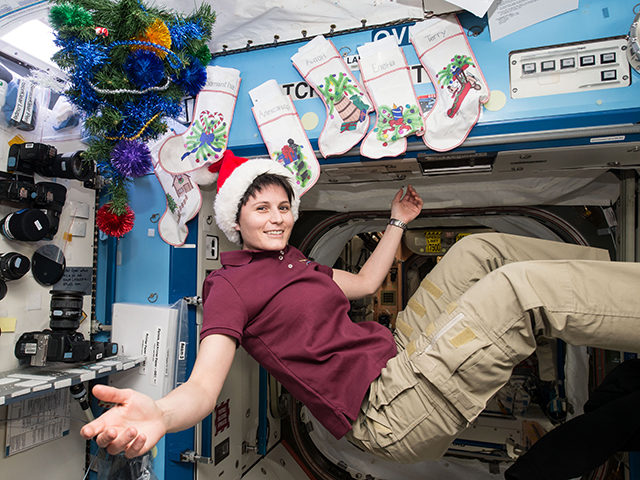
Posted on 03/17/2019 5:35:03 AM PDT by BenLurkin
"NASA astronauts endure weeks or even months exposed to microgravity and cosmic radiation—not to mention the extreme G forces of take-off and re-entry," says senior author Dr. Satish K. Mehta of KBR Wyle at the Johnson Space Center. "This physical challenge is compounded by more familiar stressors like social separation, confinement and an altered sleep-wake cycle."
"During spaceflight there is a rise in secretion of stress hormones like cortisol and adrenaline, which are known to suppress the immune system. In keeping with this, we find that astronaut's immune cells—particularly those that normally suppress and eliminate viruses—become less effective during spaceflight and sometimes for up to 60 days after."
In the midst of this stress-induced amnesty on viral killing, dormant viruses reactivate and resurface.
"To date, 47 out of 89 (53%) astronauts on short space shuttle flights, and 14 out of 23 (61%) on longer ISS missions shed herpes viruses in their saliva or urine samples," reports Mehta. "These frequencies—as well as the quantity—of viral shedding are markedly higher than in samples from before or after flight, or from matched healthy controls."
(Excerpt) Read more at phys.org ...
Now that’s something to thinks about....but in the realm of mass extermination on earth that we blame on catastrophic weather or “whatever”.
thinks about?? Oh my....should be just plain “think”
Spaceflight is stressful.
Who knew!
Space nutrition should be taking such things into account.
For example: higher ionizing radiation levels means larger numbers of free radicals that can damage cells. The solution to this should be a free radical scavengers formula they could take as a supplement.
“Free radical scavengers are substances, such as antioxidants, that helps protect cells from the damage caused by free radicals. Free radicals are unstable molecules that can build up in cells and cause damage to other molecules. This damage may increase the risk of cancer and other diseases.” (cancer.gov)
Vitamin D (more of a hormone than a vitamin), has so many antiviral properties, and a shortage of vitamin D can lead to so many problems, that many physicians are now regularly testing their patients for serum (blood) vitamin D levels.
This level of scrutiny should apply doubly to astronauts. The research for this tends to be a bit complicated, however.
https://www.ncbi.nlm.nih.gov/pmc/articles/PMC3308600/
In other words, stress hurts the immune system.
Perhaps the Homo sapiens' compulsion to expand its habitat beyond the earth will lead to the conquest of problems concerning the immune system and virus infections.
If such problems stand in the way of mankind's compulsion for survival, we will invest our vast resources in their solution, and the spin-offs could be spectacular.
I think I saw the Movies
So much for long missions to colonize other star systems.
I hope this is not a surprise to our spaceflight engineers.
Just our understanding of human interactions with viruses and bacteria down here on the earth’s surface, together with the many life-killing attributes of space above most of earth’s atmosphere, and the physiological stresses of space flight, the “news” should have been within the range of expected results, before spaceflight was undertaken, without having to know the specific details beforehand.
*ping*
Dang, there go my vacation plans. ;^)

Space VD?!? Okay, I'm sold.
Disclaimer: Opinions posted on Free Republic are those of the individual posters and do not necessarily represent the opinion of Free Republic or its management. All materials posted herein are protected by copyright law and the exemption for fair use of copyrighted works.